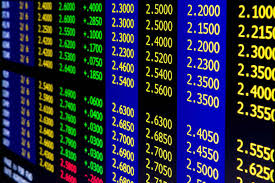A futures contract is essentially a promise to buy or sell an asset in the future, and traders can buy and sell these promises. The futures contract defines the price these assets will trade for and the time at which the trade will take place.
Here's how futures contracts work, and how they compare to similar securities.
What Is a Futures Contract?
A futures contract is an agreement to either buy or sell an asset on a publicly-traded exchange. The contract specifies when the seller will deliver the asset, and what the price will be. The underlying asset of a futures contract is commonly either a commodity, stock, bond, or currency. Since futures contracts correspond with an underlying asset, they are an example of derivatives.
Alternate name: Futures
Most futures contracts allow for a cash settlement instead of the physical delivery of the asset.
Futures contracts give businesses some level of certainty about what the price of an asset will be in the future. This allows for better planning—a farmer planting wheat can have an idea of how much it will sell for when it's time to harvest. Investors and speculators, meanwhile, benefit from futures contracts because they profit from anticipated price changes in these assets.
How Does a Futures Contract Work?
Future contracts are traded on a public exchange such as the Chicago Mercantile Exchange (CME), the Chicago Board of Trade (CBOT), and the New York Mercantile Exchange (NYMEX). These are all owned by the CME Group.
The Commodities Futures Trading Commission (CFTC) regulates these futures exchanges.
The role of the futures exchange is similar to the role of a stock exchange. Just like with stock trading, exchanges provide a safe and efficient place to trade futures. The contracts go through the exchange's clearinghouse. Technically, the clearinghouse buys and sells all contracts.
A single futures contract must be very specific. It must be for the exact same asset, quantity, and quality. It must also be for the same delivery month and location.
How Futures Contracts Affect the Economy
Futures help companies lock in prices, and this benefits both the buyers and sellers. A transportation company, for example, can use futures to lock in a guaranteed price for gas. This allows the transportation company to more accurately budget further out into the future than it would have been able to if it was dependent on market prices for gas.
Similarly, farmers use futures to lock in a sales price for their livestock or grain. They can also plan for how (and where) they will transfer possession of the goods under the contract. Just like the transportation company buying gas futures, farmers selling commodity futures can more accurately plan future revenues and costs without worrying about changing consumer demand and other variables.
Commodities futures allow economists to conduct price assessments and price forecasts for raw materials. These values are in part determined by the traders that trade futures, and also by the analysts that monitor these markets.
Hedge funds use futures contracts to gain more leverage in the commodities market. They have no intention of actually buying, selling, or physically interacting with any commodity. Instead, they plan to buy an offsetting contract at a price that will make them money. In a way, they are betting on what the future price of that commodity will be.
Types of Futures Contracts
Futures contracts are written for commodities, stocks, bonds, or currencies.
Commodities
Commodities are hard assets like wheat, gold, or oil. Of these, the most important may be oil futures because they determine oil prices. Oil prices, in turn, are the major determinant in the price you pay at the gas pump.1 A rise in oil prices will raise the pump price as well.
Commodity prices are volatile, and commodity futures trading is a risky venture for traders.
Stocks and Bonds
Traders can trade financial instrument futures when they sense a shift in the economic trend. If they think rates will drop, for instance, then they may buy a futures contract for bonds (this is because bond prices rise when interest rates fall). If the trader thinks stocks will rise, they may buy futures corresponding to the S&P 500.
Currencies
Futures contracts for currencies are written in pairs. It's a promise to exchange a certain amount of one currency for an amount of another currency. For instance, if a trader feels like the value of the U.S. dollar will rise in comparison to the value of the Euro, then they'll buy a USD/EUR future that matches this sentiment.
Traders can also trade options on futures. Just like with stock options, futures options give the purchaser the right (the "option") to buy or sell a futures contract by a certain day. Futures options cost less than purchasing an actual futures contract. This can reduce risk (if used wisely), and it also allows more traders to achieve greater diversification.





0 Comments